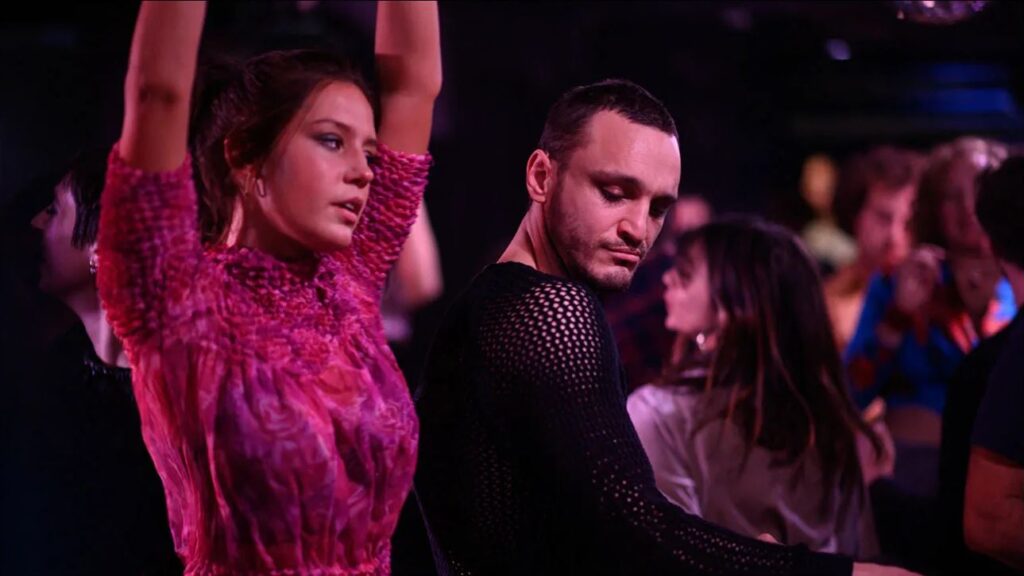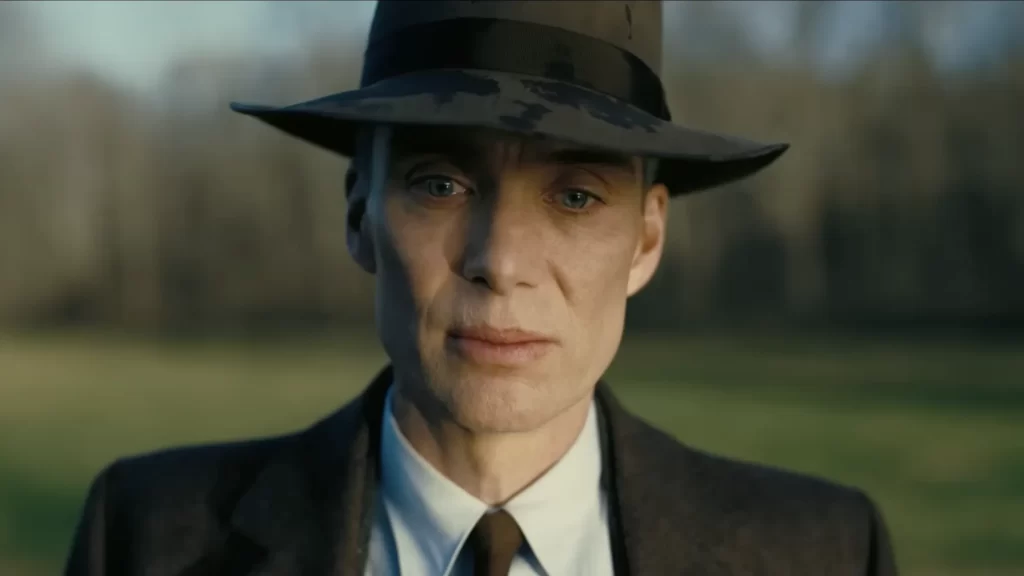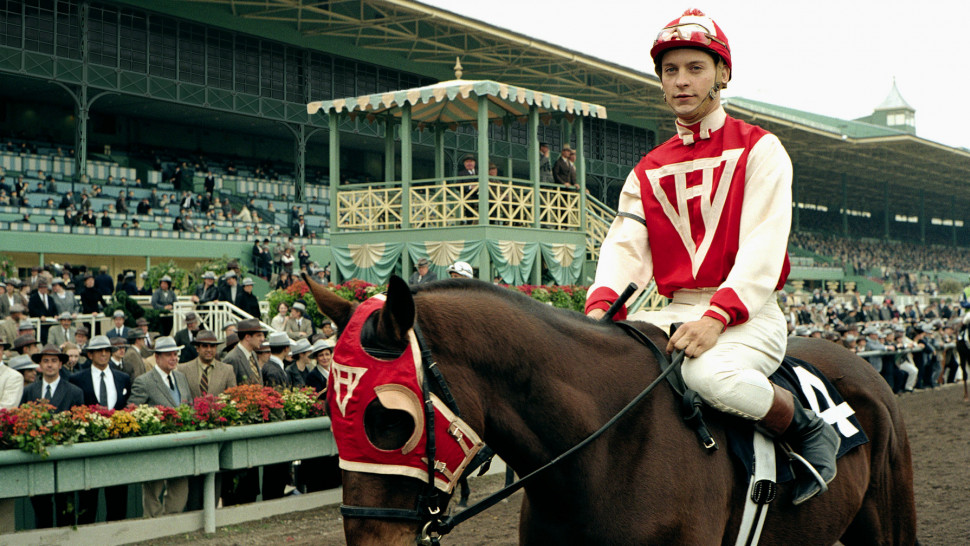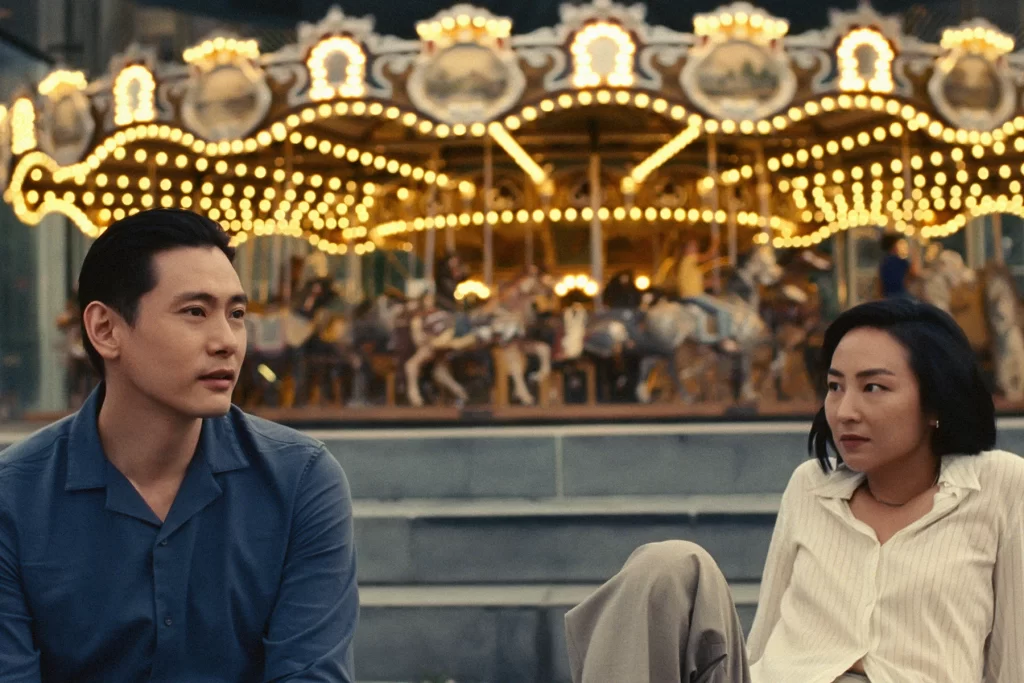Landscape with Invisible Hand: Grave New World
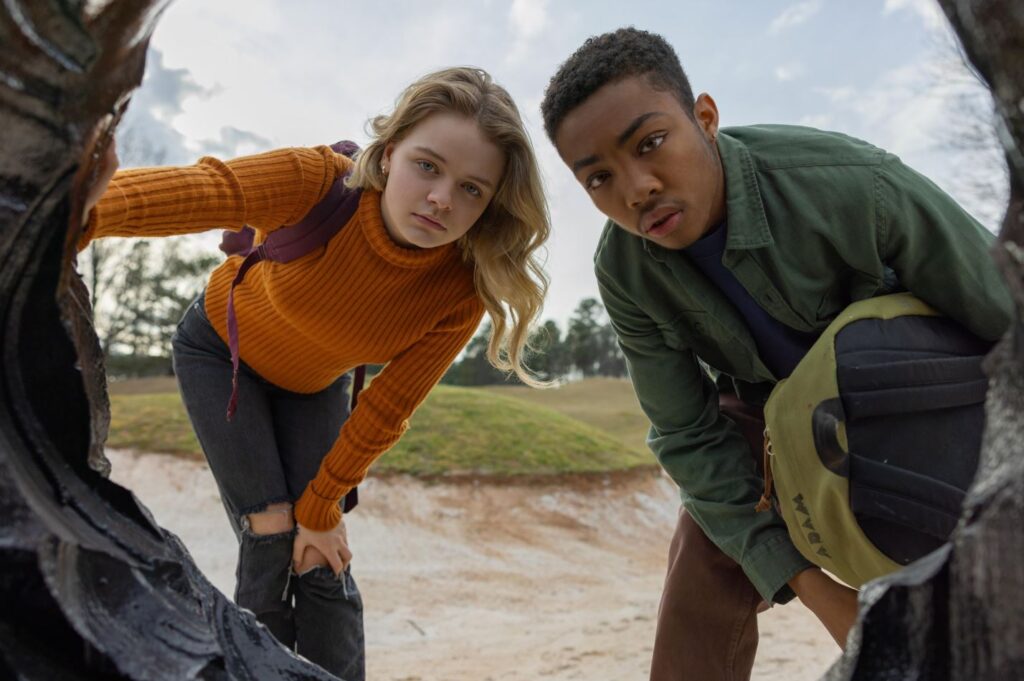
Cory Finley won’t repeat himself. You couldn’t have blamed him, following his electrifying debut of Thoroughbreds, if he’d chosen to keep making razor-sharp thrillers his whole career. Instead he pivoted to docudrama with Bad Education, telling the fact-based story of a different sort of sociopath who preyed on people not with poison and knives but with smiles and scams. His new movie, Landscape with Invisible Hand, is also partially set in the classroom, but the malfeasance it chronicles is far stranger than garden-variety embezzlement. Early on, an English teacher informs his students that his “microscopic salary” has nevertheless been deemed too onerous for the new administration. He then strolls into the courtyard and, with minimal fanfare, puts a gun in his mouth and splatters his brains all over the concrete. Bad education, indeed.
It’s a jolting introduction, one which signals that the ensuing picture won’t conform to the sanitized standards of the young-adult playbook. But the oddness of Landscape with Invisible Hand is apparent even earlier. Its very first scene finds a young aspiring painter named Adam Campbell (Asante Blackk, from This Is Us) sketching a vista of the bright blue sky, only for his view to become clouded when a gigantic flying saucer rolls overhead. That might seem alarming, but Adam reacts with resigned annoyance—“Find someplace else to park!”—and we immediately realize that we’re watching a piece of dystopian fiction. But where many alien-invasion films traffic in terror and violence, this one is characterized by drudgery and disenchantment. Read More

